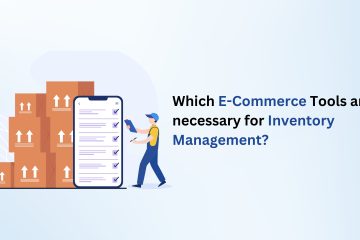In dynamic supply chain management, inventory management and warehouse management systems (WMS) are two essential components in ensuring efficiency. Although the terms use the same method, it is necessary to understand their differences. In this blog, we explore the challenges of inventory and warehouse management systems and shed light on their unique roles and roles in the supply chain.
Inventory Management
Inventory management is a comprehensive approach that manages the entire life cycle of a company’s products, from procurement to manufacturing and distribution; it can also be referred to as procurement, storage, and processing of a company’s products to meet customer needs while reducing costs. The primary goals of inventory management are to prevent inventory overruns, minimize excess inventory, and ensure accurate record-keeping.
If you seek the Best Inventory Management Software Providers in Delhi, look no further when you have DiInfotech.
As a provider of IT services in Delhi, DiInfotech stands out by not only offering comprehensive IT solutions but also specializing in inventory management systems. Recognizing the integral role that technology plays in modern business operations, we leverage our expertise in software development, technology integration, and system customization. This allows us to design and implement inventory management solutions tailored to the specific needs of our clients.
Key Features of Inventory Management
Ordering and Reordering: Identifying optimal stock levels to meet customer needs is essential to inventory management. To maintain supply and order goods when inventory reaches a predetermined reorder point.
Stock Control and Tracking: The system allows companies to monitor inventory levels in real-time and accurately track the inventory they have on hand. This helps prevent overstock or overstock situations.
Forecasting: Inventory management uses data analysis and past sales data to accurately predict future demand. This helps in making informed quantity and inventory decisions.
Warehouse Management System (WMS)
A warehouse management system (WMS) is a software application that makes warehouse operations more efficient and effective. WMS focuses on practical aspects of warehouse inventory management, ensuring efficient use of available space, accurate order identification, and optimizing delivery routes.
Key Features of Warehouse Management Systems
A good WMS created with the expertise of an IT Software Company in Delhi like DIInfotech can always enhance space utilization, reduce storage costs, and streamline the order fulfillment process for your business.
Space Efficiency: By carefully allocating products according to size, demand, and sales volume, WMS makes warehouse space more efficient. This reduces wasteful storage costs and increases overall efficiency.
Identifying and Organizing Orders: WMS is essential for the order fulfillment process as it guides the warehouse staff in the most effective ways so that items can be identified quickly and accurately. They reduce errors and eliminate customer dissatisfaction.
Real-time Tracking: The WMS provides users with real-time information about how inventory is moving through the warehouse. This includes posting information about new inventory arrivals, their warehouse locations, and shipping steps.
Differentiating Factors
Scope of Functionality: WMS is primarily concerned with the internal operations of the warehouse, whereas Inventory Management covers all aspects of the supply chain, from procurement to delivery. Strategic planning, demand forecasting, and order optimization are all part of inventory management, whereas WMS handles the day-to-day activities of arranging, selecting, and transporting inside the warehouse.
Software Integration: To facilitate the smooth transfer of data across departments, inventory management frequently interacts with other business systems, such as enterprise resource planning (ERP). On the other hand, WMS is largely concerned with the operational aspects of the warehouse and necessitates connection with automation systems and barcode scanners.
Inventory Management and Warehouse Management Systems are interconnected components that contribute to the overall efficiency of supply chain operations. WMS focuses on the work in the warehouse, whereas Inventory Management optimizes the complete inventory lifecycle using a comprehensive approach. Investing in inventory management and warehouse management systems can revolutionize the way inventory is managed, how the warehouse functions, and in maintaining the overall supply chain efficiency? Whether you are in manufacturing, retail, or e-commerce, DIInfotech can empower your business to stay competitive in a rapidly changing market.
As a reliable company that provides Top Inventory Management Software in Delhi, DIInfotech has an inventory management system that can be customized for different business needs. Get in touch with us today, for your company’s inventory management system.



0 Comments